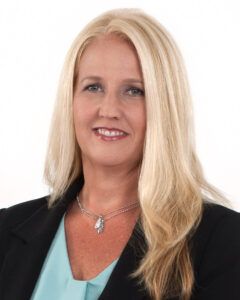By Patricia Entsminger, CPA/CFE/CIA and Kathleen Martin, CPA
Thinking about a family office? There are many options to consider. A 2016 Ernst & Young survey estimated that there are 10,000+ family offices worldwide. Whether you’ve inherited your wealth or built it independently, having an expert team to help manage, advise and protect your legacy provides both confidence and peace of mind.
We’re often asked by potential clients when they should shift the management of their financial affairs from a family member, or a bookkeeper, to a more formalized family office or outsourced advisory partner where multiple team members handle specific areas of expertise. While each situation is personal, and individual, there are three questions you can ask yourself to determine if outsourcing or establishing a family office makes sense.
1) Has my wealth increased substantially in recent years?
If your business has experienced phenomenal success, you’ve sold a business, or inherited a family legacy, it’s an exciting time for you but not without a new set of challenges. Such large-scale liquidity events can facilitate the necessity to engage trusted advisors to help you make the best choices when it comes to your wealth. At the same time, establishing a fully staffed in-house family office is expensive, depending on the qualifications of the experts you choose to hire. If your total net worth is over $100 million, you may want to consider a family office; if total assets are under that threshold, you may be more efficiently served by a traditional group of advisors— an outsourced accounting team to handle day-to-day bill payment and financial management, tax advisory and estate and trust planning; a financial advisor to oversee your investment portfolio; and an attorney to offer consultation on family and business legal matters.
2) How complicated is my life?
If your wealth is encompassed in a single business or one large portfolio of stocks and bonds, this may be something that you and your family can handle without a full-time advisory team. But many times, entrepreneurial people find themselves selling their primary business and building more businesses on the foundation of their early success, and that’s where things get more complicated. Similarly, if you have an excess of personal assets, such as multiple residences, keeping up with each of those properties and the tax ramifications can quickly become overwhelming. And as you plan your legacy, if your estate plan is complicated by multiple partnerships, foundations and trust structures, this may be an indicator that having an outsourced partner or full-time family office will help you make better decisions for the future.
3) What are my priorities?
If managing the family finances has become a burden or source of stress, then it is definitely time to consider an alternative. Most families choose to create a family office or engage an outsourced team of partners to provide them with more flexibility. Having a neutral party offers options when it comes to the involvement of grown children in the family business, allowing staff and advisors to focus on growing and protecting wealth without family politics. A family office will still require some personal responsibility when it comes to hiring and managing the people you employ, while an outsourced solution will take the majority of that burden off of you.
At the end of the day, the decision to establish a family office or to outsource your affairs to a collaborative team is a very personal decision. You must establish relationships of trust and confidentiality with those who will be entrusted to handle your personal and financial information, and that can take time. Asking yourself these important questions and talking through your concerns with your family is the first step to determining what is best for the future of your financial legacy.


Shareholder Patricia Entsminger, CPA/CFE/CIA and Manager Kathleen Martin, CPA of Kerkering Barberio Outsourced Accounting Services offer a diverse set of tax and accounting services to businesses, nonprofits and family trusts, ranging from basic transactional services to virtual CFO/consultant advisory services. The Outsourced Accounting team works in tandem with internal accounting staff and external providers to meet clients’ accounting needs and identify cost-saving strategies and future financial opportunities. Ms. Entsminger joined Kerkering Barberio in 1999 and was admitted as a shareholder in 2006, while Ms. Martin joined the KB team in 2013.